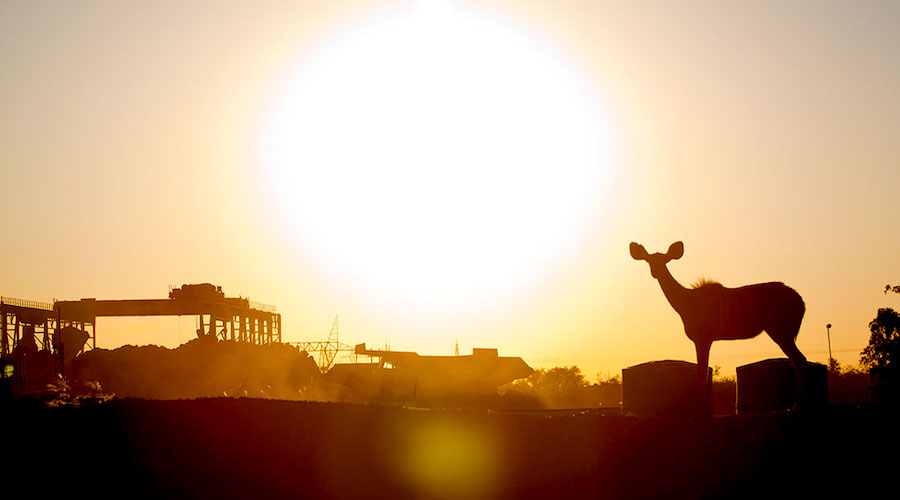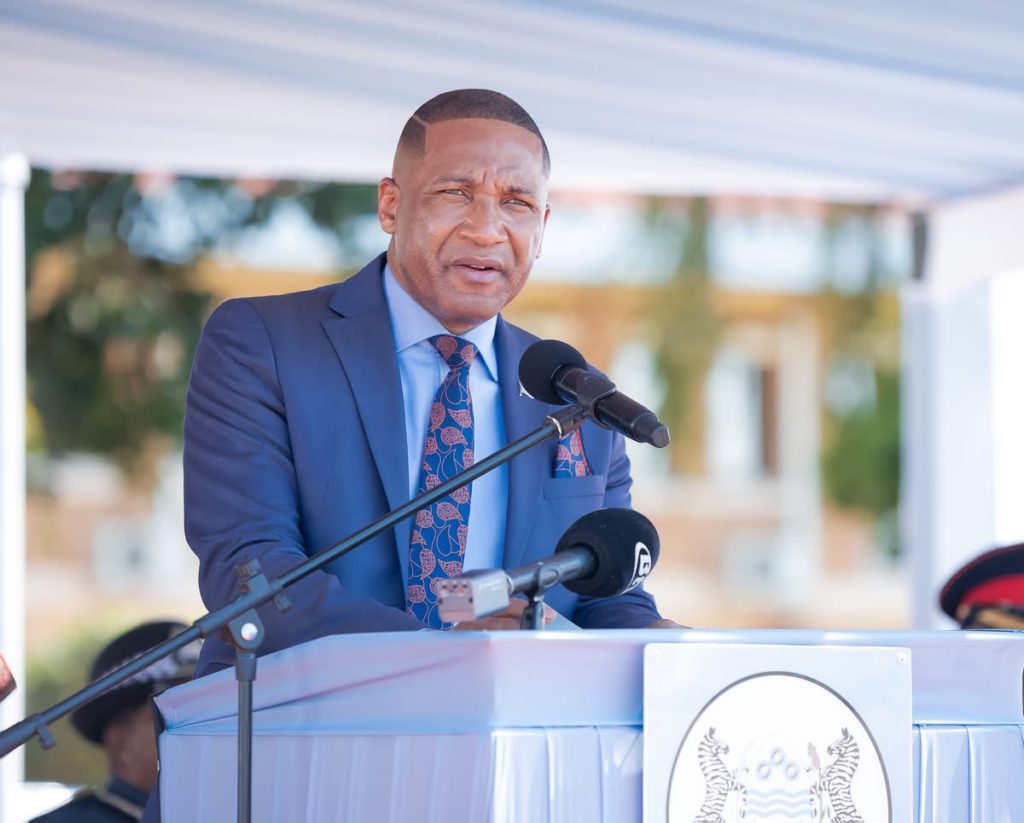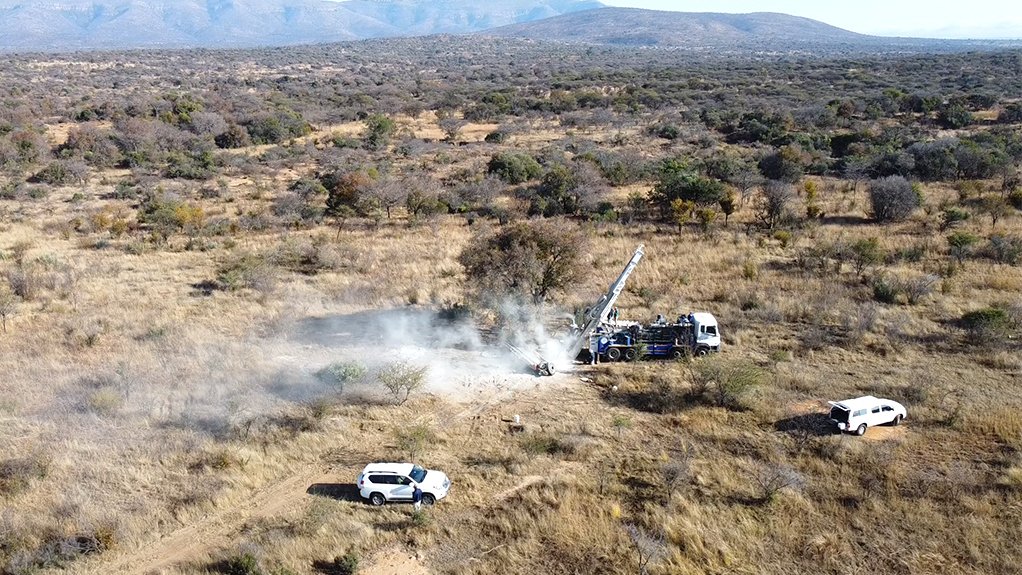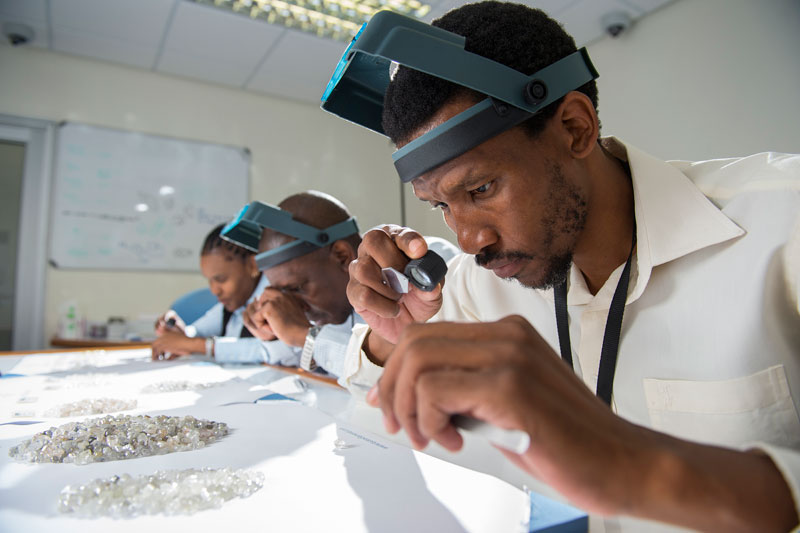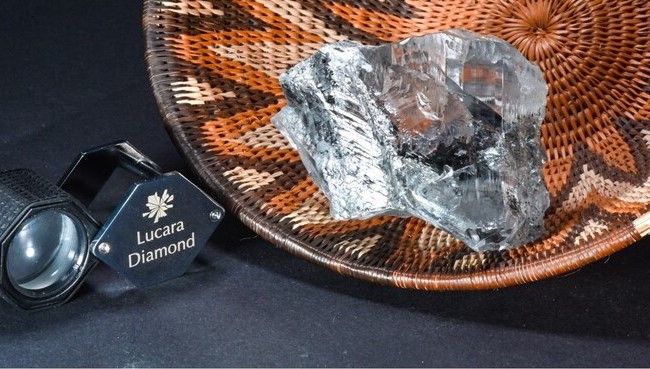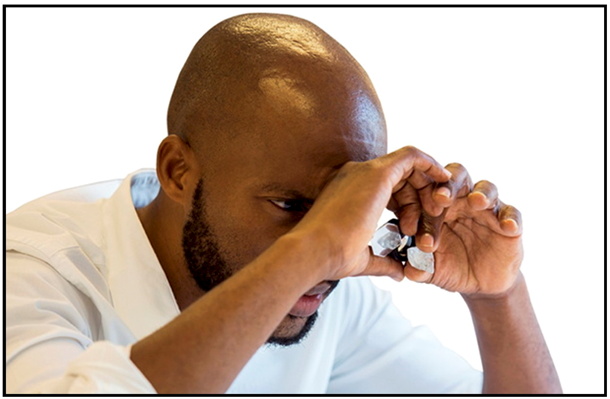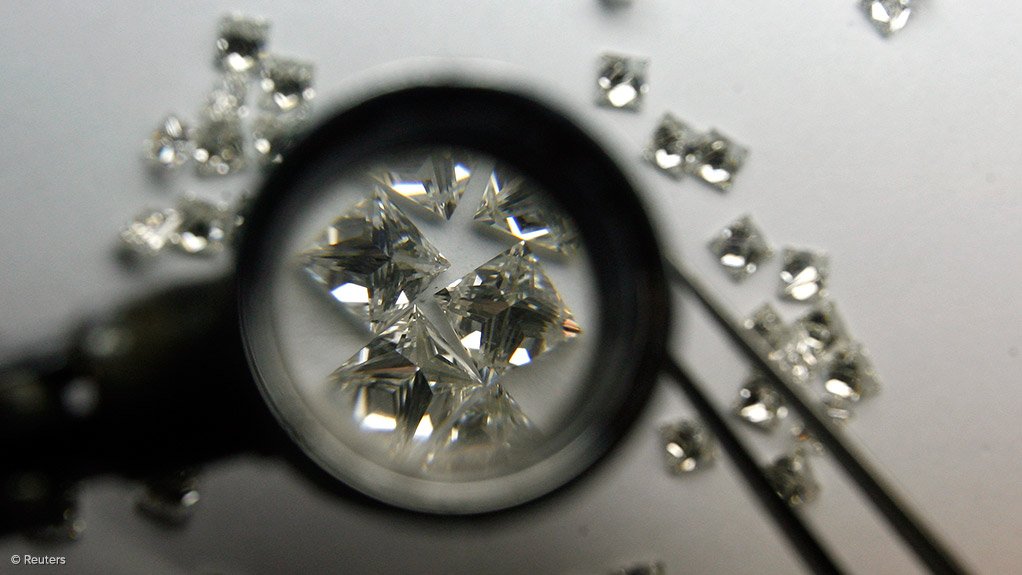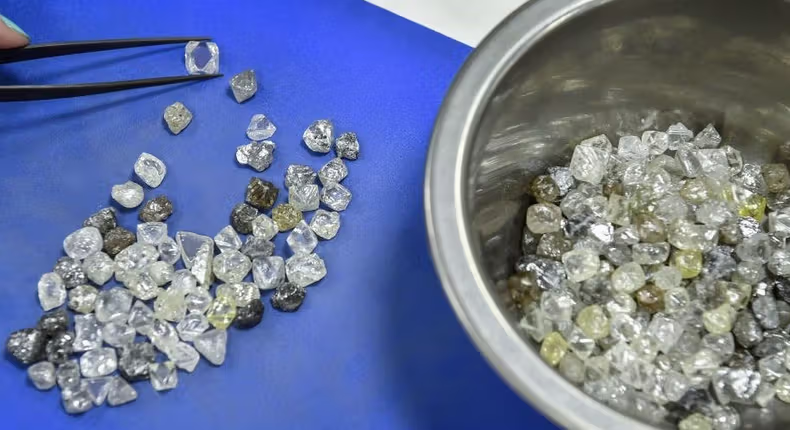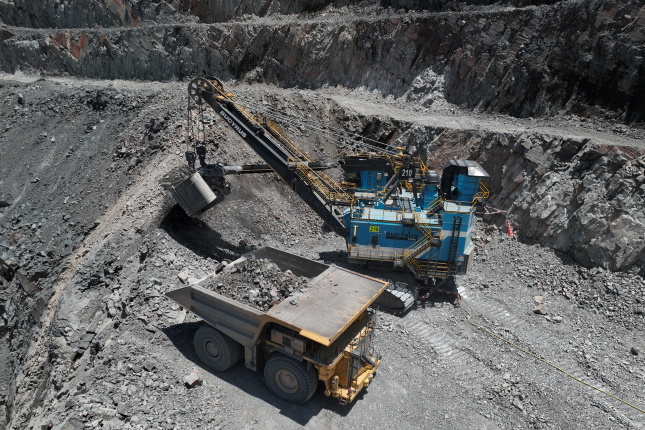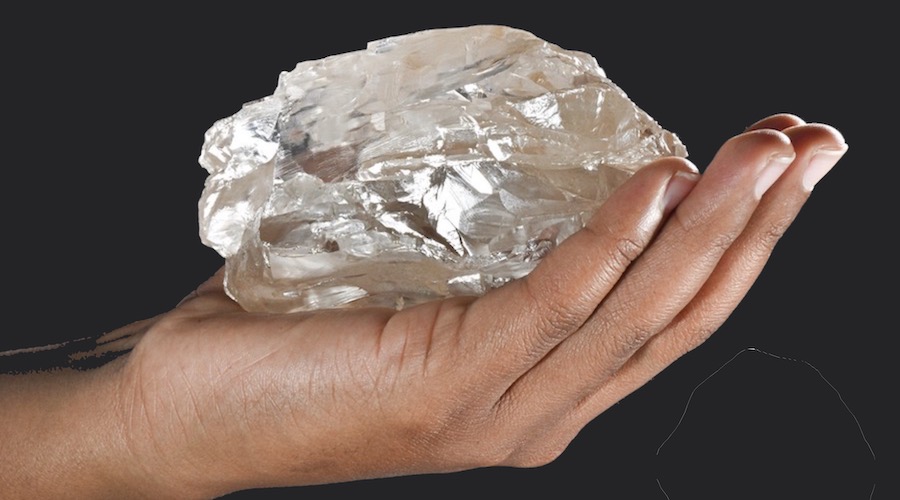
Canada’s Lucara Diamond achieved record-breaking production in 2024, highlighted by the recovery of two exceptional stones at its prolific Karowe mine in Botswana.
The miner increased its processed ore to 2.9 million tonnes last year, up from 2.8 million tonnes in 2023. It also set a new milestone with the recovery of 807 “specials”—diamonds larger than 10.8 carats—compared to 602 in the previous year. These accounted for 7.6% of the total recovered carats, up from 5.3% in 2023.
The two most important diamonds recovered last year were the 2,488-carat Motswedi and the 1,094-carat Seriti diamonds, both unearthed at Karowe.
Motswedi, found in August, is the largest diamond recovered in the last century. Its name means “water spring” in the local Setswana language, symbolizing underground water surfacing to bring life and vitality.
The Seriti stone, unearthed in September, translates to “aura” or “presence”, reflecting cultural identity and legacy.
Lucara’s discoveries have continued this year, with the recovery of a1,476-carat non-gem diamond in January.
Revenue jump
The company sold 399,215 carats in 2024, generating $203.9 million in revenue — an 18% increase from $172.4 million the previous year.
“Our world-class Karowe mine continues to set new benchmarks,” CEO William Lamb said in a news release. “The open-pit operations delivered yet another remarkable milestone with the recovery of our seventh 1,000+ carat diamond.”
Lamb also highlighted steady progress on Karowe’s underground expansion, with shaft sinking marking a major step forward. The project is expected to begin commercial production in early 2028.
Since it began operations, Karowe has yielded some of the world’s most remarkable diamonds, including the 1,758-carat Sewelô in 2019, the 1,109-carat Lesedi La Rona in 2015, and the 813-carat Constellation, also in 2015.
Karowe is also credited for having yielded Botswana’s largest fancy pink diamond to date, the Boitumelo.
The mine remains one of the world’s highest-margin diamond mines, producing an average of 300,000 high-value carats each year.
Source: Mining.com

